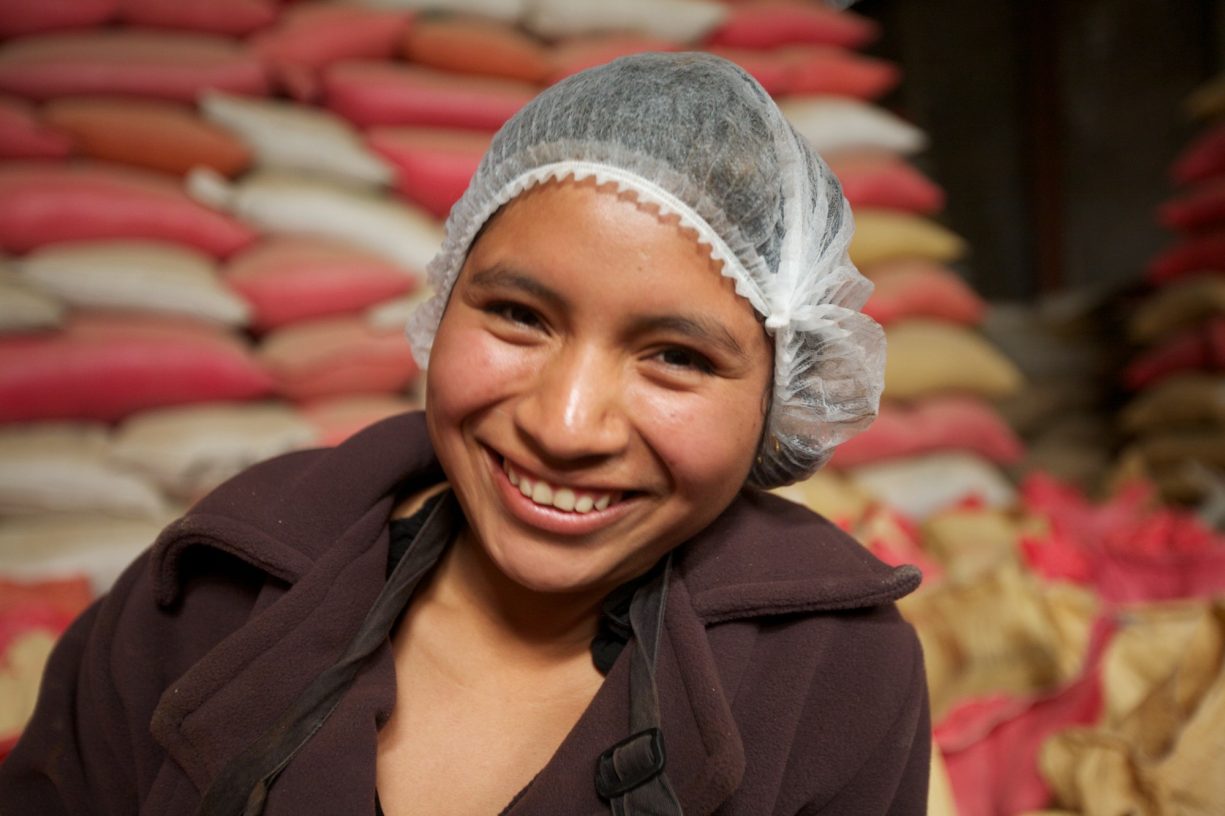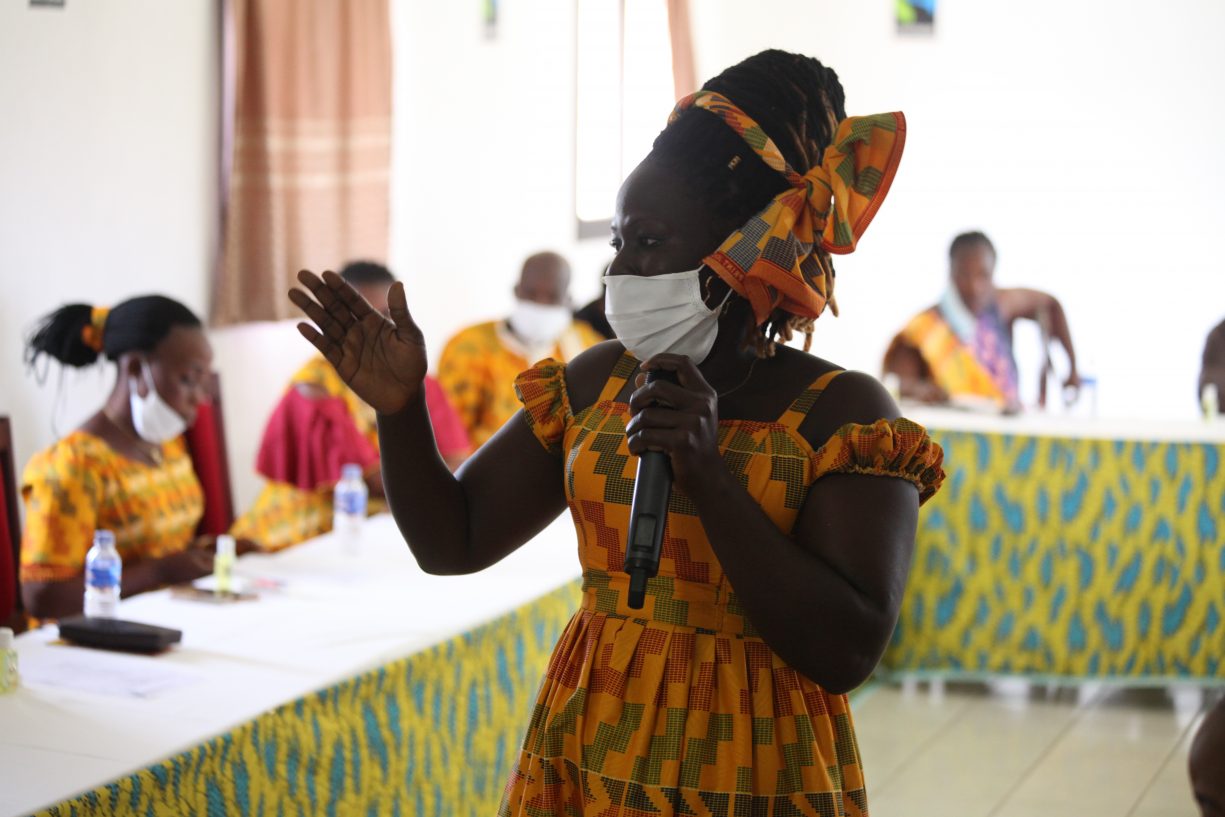Gender equality study – 2019 – 2020

Fairtrade study highlights successes and ways forward towards gender equality
A new study from Fairtrade explored how women have benefitted from Fairtrade certification – through our standards, investments in women-focused projects, or programs that train them to be leaders and entrepreneurs.
The study, conducted by the Centre for International Forestry Research, aimed to analyze the results of the Fairtrade Gender Strategy 2016-2020, which was introduced to set a clear direction and approach for Fairtrade’s global work on gender.
 To do so, a review of literature, existing data, and visits to six coffee cooperatives – two each from Guatemala, Indonesia and Kenya – helped to identify progress made on the three targets of the Fairtrade gender strategy:
To do so, a review of literature, existing data, and visits to six coffee cooperatives – two each from Guatemala, Indonesia and Kenya – helped to identify progress made on the three targets of the Fairtrade gender strategy:
- Access and inclusion: Significantly increase the active and equal participation of women in Fairtrade certified smallholder and hired labor organizations;
- Empowerment and equity: Empower more women and girls with opportunities to access equitably the benefits of Fairtrade; and
- Gender transformative change: Address systemic issues that hamper the realization of greater gender equality in Fairtrade supply chains.
The key findings from the study show that Fairtrade’s gender approach is making a difference – and also identifies where more work is needed.
Fairtrade increases access & inclusion
A recent study showed that 5 out of 14 governance positions on Fairtrade coffee farms in Guatemala are held by women.
Increasing training and understanding
Fairtrade provides farmers and workers with valuable training to support women entrepreneurs and equal representation. Across the globe, courses and trainings for women and men provide the tools they need to speak up, be heard and improve understanding, leading to new opportunities.

The Women’s School of Leadership provides modules on self-esteem, leadership, economic autonomy, sexual division of work and more. This innovative set of courses provide additional resources to women in Fairtrade cooperatives, helping them seize the chance to speak up and become equal representatives. By participating in this training, women are in a better position to take up leadership roles and recognize their own value.
The results of this study show that the Leadership School has been instrumental in strengthening the participation of some women at the within Small Producer Organizations (SPOs). It also showed that broader participation of women in local governance (beyond the SPO at the jurisdictional level) is still low.
In some regions, gender norms around land tenure have presented the greatest challenge for women’s representation in cooperatives. Other barriers to entry include access to working capital, technical knowledge and time available.
Fairtrade’s Training Workshops on Gender Awareness also provide a valuable opportunity for women. These courses teach concepts to women and men on topics including gender roles, discrimination, gender-based violence and self-reflection. For women that attended these workshops, the most positive changes reported were opening of opportunities for women, that women themselves are being more proactive, and that men are being more respectful of women.
What is the role of Fairtrade Premiums in gender equality?
Gender-responsive projects which have been supported by the Premiums include:
- Facilities for women and mothers, such as maternity wards, lactation stations, childcare facilities and private washrooms
- Technologies to reduce women’s labor burdens
- Income-generating projects
- Interventions to support school-aged girls, such as scholarships, school fees and providing women’s sanitary products)
We recognize that Fairtrade Premiums and those associated projects can’t bring about women’s equality on their own. That is why we have introduced projects like the Women’s School of Leadership and workshops, but we recognize more still needs to be done.
More work to be done
The gender study highlighted important progress for women, but more work is ahead of us. We are delighted the findings indicate that Fairtrade has contributed to greater gender equality despite challenging structural and cultural barriers in the environments where Fairtrade operates. However, our journey continues as we look for additional ways to make a meaningful impact.
The study showed that women are still significantly less empowered than men when reviewing issues like land ownership, work-life balance and self-efficacy.
Our findings also highlighted that while women are speaking out more in key meetings, in all case studies, women were less comfortable than men.
As we move forward, we have identified some of the next steps we can take towards gender equality in supply chains. Some of these steps include new gender-responsive projects and looking at how we can shape culturally and institutionally embedded gender norms to be more equitable. Some of the recommendations from this research are to consider Fairtrade’s intended scope, take local context into account, and involve our partners.
This study is just the beginning, and Fairtrade is looking for new ways to advocate for and support women’s roles in agricultural production as part of our continuing work on this important topic.

How can businesses support gender equity?
Businesses can improve the lives of women by expanding market opportunities in partnership with women farmers, advocating for change in supply chains, encouraging suppliers to assess gender-specific risks and consider women’s needs such as childcare, helping to expand their technical production and processing skills and becoming Fairtrade certified. These efforts combined will provide valuable resources and opportunities for women farmers and workers across the globe. Find out more about how your business can work with Fairtrade.



